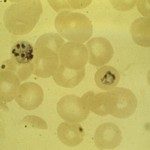Lien vers Pubmed [PMID] – 38474062
Lien DOI – 10.3390/ijms25052815
Int J Mol Sci 2024 Feb; 25(5):
Several types of mood disorders lie along a continuum, with nebulous boundaries between them. Understanding the mechanisms that contribute to mood disorder complexity is critical for effective treatment. However, present treatments are largely centered around neurotransmission and receptor-based hypotheses, which, given the high instance of treatment resistance, fail to adequately explain the complexities of mood disorders. In this opinion piece, based on our recent results, we propose a ribosome hypothesis of mood disorders. We suggest that any hypothesis seeking to explain the diverse nature of mood disorders must incorporate infrastructure diversity that results in a wide range of effects. Ribosomes, with their mobility across neurites and complex composition, have the potential to become specialized during stress; thus, ribosome diversity and dysregulation are well suited to explaining mood disorder complexity. Here, we first establish a framework connecting ribosomes to the current state of knowledge associated with mood disorders. Then, we describe the potential mechanisms through which ribosomes could homeostatically regulate systems to manifest diverse mood disorder phenotypes and discuss approaches for substantiating the ribosome hypothesis. Investigating these mechanisms as therapeutic targets holds promise for transdiagnostic avenues targeting mood disorders.

